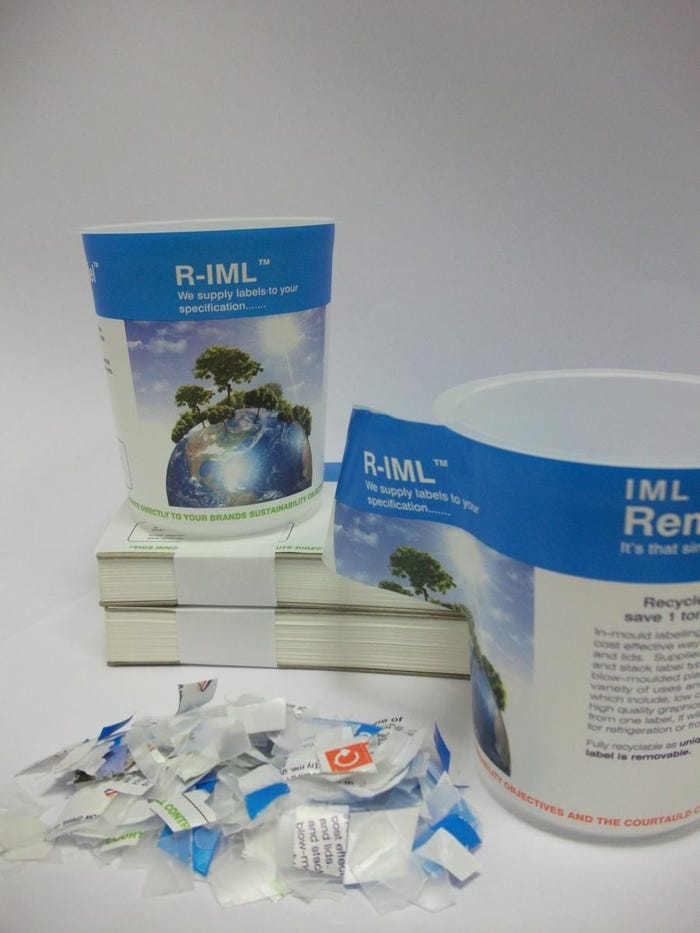UK converter launches removable in-mold label
Systems Labelling, a UK-based converter, has developed a completely removable in-mold label that can be taken off during the recycling process or by the consumer after use.Stephen Lloyd, director of marketing and business development for Systems Labelling, told PlasticsToday the patent-pending R-IML will "revolutionize" the in-mold labeling market by facilitating the production of food-grade rPP.
March 1, 2012
Systems Labelling, a UK-based converter, has developed a completely removable in-mold label that can be taken off during the recycling process or by the consumer after use.
Stephen Lloyd, director of marketing and business development for Systems Labelling, told PlasticsToday the patent-pending R-IML will "revolutionize" the in-mold labeling market by facilitating the production of food-grade rPP.
 "The ability to recycle natural/clear or white polypropylene to its original state displaces the use of virgin resin in consumer product packaging for color-sensitive applications," he said. "Clearly, there would be a commercial value to this, not to mention the CO2 savings."
"The ability to recycle natural/clear or white polypropylene to its original state displaces the use of virgin resin in consumer product packaging for color-sensitive applications," he said. "Clearly, there would be a commercial value to this, not to mention the CO2 savings."
The challenge was to devise a solution that would mold at standard temperatures and dwell times, and be able to perform in moist, wet, frozen and microwaveable environments, he said. The R-IML has no impact on the traditional molding processes, and has passed Pira International migration tests.
PP is the third-most common polymer found in household waste in the UK after HDPE and PET, the company stated. Unlike milk and drinks bottles, PP packaging is used in many different grades and colors, which can make it difficult to recycle.
"Until now there has been little incentive for UK industries to consider the benefits of reducing the dependence on virgin PP in the manufacture of food packaging and, at the same time, divert waste from landfill and boost the UK market value of recycled PP," the company stated in a press release.
Therefore the challenge has been to find a way to remove in-mold labels post-use.
"This solution, if accepted as a standard across the industry, could enable food-grade rPP to be produced on a large scale," Lloyd said. "This is something that would be of international and global benefit."
Lloyd said the company turned its attention to PP after its success in developing a self-adhesive label that is released from HDPE milk bottles, which enabled a higher proportion of recycled polymer used for new bottles.
The R-IML will be available on a global scale under license, he said.
About the Author(s)
You May Also Like


